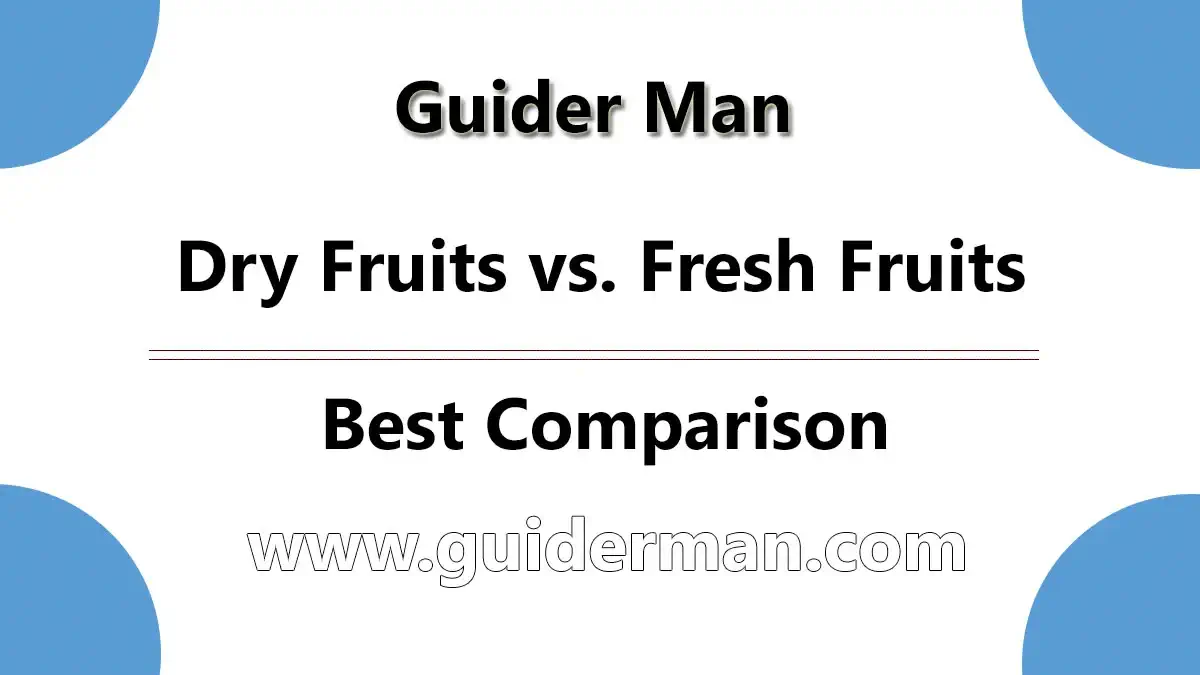In the world of nutrition, the debate between dry fruits and fresh fruits has captured the curiosity of health enthusiasts and food lovers alike. Both categories offer an array of vitamins, minerals, and antioxidants, but they differ significantly in their nutritional profiles and benefits. In this article, we delve deep into “Dry Fruits vs. Fresh Fruits: A Nutritional Comparison” to uncover the advantages and disadvantages of each option.
Nutritional Value of Dry Fruits
Concentrated Goodness
Dry fruits are a concentrated source of nutrients, packing a considerable nutritional punch into a compact form. They undergo a drying process, during which the water content is removed, intensifying the concentration of vitamins and minerals. This process produces a higher calorie content per serving, making dry fruits an energy-dense snack.
Rich in Fiber and Antioxidants
One of the standout features of dry fruits is their impressive fibre and antioxidant content. They are known to promote digestive health, regulate blood sugar levels, and combat oxidative stress. Prunes, for instance, are renowned for their natural laxative properties due to their high fibre content. At the same time, raisins boast a healthy dose of antioxidants that neutralise harmful free radicals.
Nutritional Value of Fresh Fruits
Bursting with Hydration
Fresh fruits are celebrated for their high water content, providing a hydrating and refreshing option, especially during hot weather. The moisture present in fresh fruits contributes to their low-calorie count, making them an ideal choice for those aiming to manage their weight.
Varied and Abundant Nutrients
Fresh fruits boast a diverse range of vitamins, minerals, and phytonutrients that contribute to overall health. From the vitamin C-packed citrus fruits that bolster the immune system to the potassium-rich bananas that support heart health, each fruit brings unique nutritional benefits.
Dry Fruits vs Fresh Fruits: A Nutritional Showdown
Caloric Density and Portion Control
Due to the water removal process, dried fruits are significantly more calorie-dense than fresh fruits. While they offer concentrated nutrients, exercising portion control is crucial to avoid excessive calorie intake. On the other hand, the high water content of fresh fruits allows for more significant portions with fewer calories, aiding in satiety and weight management.
Sugar Content
An essential consideration in the “Dry Fruits vs. Fresh Fruits: A Nutritional Comparison” is sugar content. While both categories contain natural sugars, dried fruits often have a higher sugar concentration due to the absence of water. Monitoring sugar intake is vital, particularly for individuals with diabetes or those watching their glycemic index.
Micronutrient Spectrum
Fresh fruits offer a more comprehensive array of vitamins and minerals in their natural state compared to their dried counterparts. The drying process can lead to losing some heat-sensitive nutrients, such as vitamin C. Therefore, a balanced diet incorporating both types of fruits can help ensure a comprehensive micronutrient intake.
FAQs
Are dry fruits a good snack option for weight loss?
Yes, dry fruits can be a part of a weight loss plan due to their satiety-inducing fibre content. However, portion control is crucial due to their calorie density.
Can I get enough vitamin C from dried fruits?
While dried fruits contain vitamins, drying may lead to a reduction in vitamin C levels. Fresh fruits are generally a more reliable source of this essential nutrient.
Conclusion
In the realm of nutrition, “Dry Fruits vs. Fresh Fruits: A Nutritional Comparison” offers a nuanced perspective. Dry fruits provide concentrated nutrients, making them a suitable energy source, while fresh fruits offer a spectrum of vitamins, minerals, and hydration. To harness the benefits of both worlds, consider incorporating a variety of dry and fresh fruits into your diet. Remember, moderation and diversity are vital to reaping the nutritional rewards while indulging in the deliciousness these fruits offer.
| Guider Man Homepage | Check Here |
